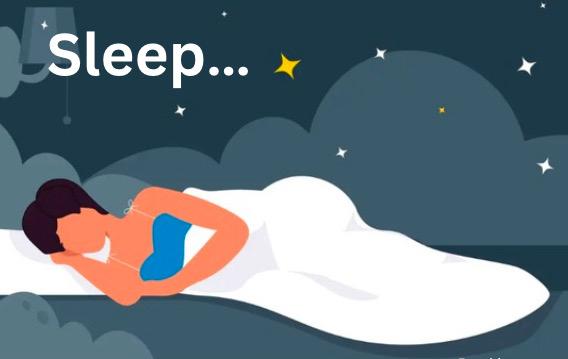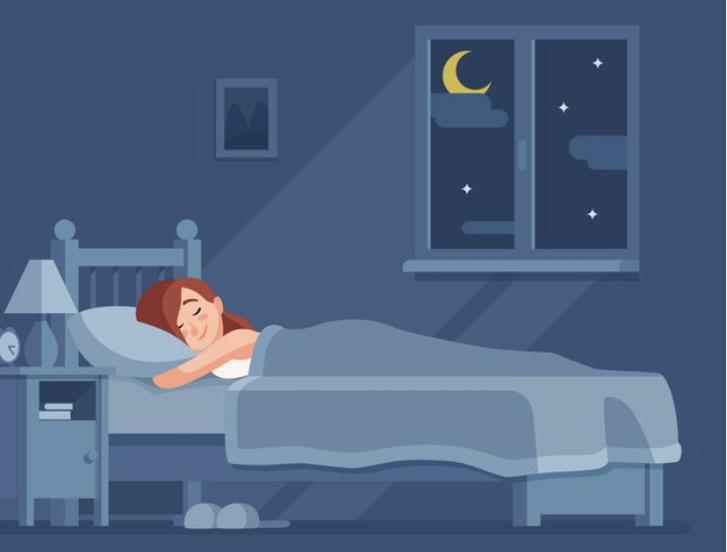
HOW SLEEP IMPACTS WEIGHT, FITNESS AND MOTIVATION
Sleep is not just a passive activity – it’s a crucial process for muscle repair, hormone regulation and overall energy management. When you are sleep deprived, it can lead to:
- Increased hunger and cravings:Poor sleep can increase levels of ghrelin, the hunger hormone, and decrease leptin, which signals fullness. This can lead to overeating, making poor food choices and struggles with weight management.
- Decreased workout performance:Lack of sleep negatively impacts co-ordination, strength, endurance and recovery. You may feel sluggish and unable to perform at your usual intensity, leading to frustration.
- Reduced motivation: Chronic sleep deprivation can leave you feeling unmotivated and exhausted, both physically and mentally. This can make it harder for you to stick to workout routines, eat healthily and maintain a positive attitude towards your fitness goals.
THREE SLEEP TIPS TO SHARE
- DON’T GO TO BED TOO EARLY
It might sound counterintuitive but going to bed too early – even if you’re feeling exhausted – can actually make things worse.
When you’re sleep deprived, it’s tempting to crash early to ‘catch up’ on rest. But going to bed too early can actually decrease your body’s natural ‘appetite for sleep’. You may find that, even though you’re in bed, you can’t fall asleep or you wake up in the middle of the night wide awake.
Instead, I would encourage you to stick to a regular sleep schedule with a later bedtime and to set an alarm a little earlier (even if you are awake early). This helps to build a higher ‘drive’ for sleep and a stronger connection between bed and sleep, making it easier to fall asleep and stay asleep.
- IF YOU’RE AWAKE AT 3AM, DON’T BATTLE IT – LEAVE THE ROOM
Probably the most common sleep issue is lying awake at 3am with a racing mind.
If you wake up in the middle of the night and can’t fall back asleep, my advice would be not to stay in bed and ‘try’ to sleep. When we lie in bed frustrated and irritated it creates a negative connection between the bed and anxiety, making it harder to sleep in the future.
Instead, I would encourage you to get up and leave the bedroom. You can do something relaxing, like reading a book or watching TV, anything to move focus away from sleep. When you start to feel sleepy again, you can return to bed. The goal is to break the cycle of frustration and anxiety associated with being awake at night, which in turn can improve overall sleep quality.
- FOCUS ON OTHER WAYS TO BOOST ENERGY
Many people who struggle with sleep spend all their energy focusing on how to get more sleep to feel better, but this can backfire as the more vigilant we are about sleep, the more anxiety is triggered, leading to even worse sleep.
Instead of focusing solely on sleep, explore other ways to boost your energy levels. For example:
- Adjust workout times: If you are feeling exhausted in the morning, it might not be the best time for a high-intensity session. Try to train at different times of the day to see if you feel more energised during a different part of the day.
- Modify workout intensity: If you are feeling tired or have had poor sleep, I would suggest a less-intense workout or a recovery-focused session. This helps prevent burnout and reduces stress on the body. It will also make you less likely to give up if you align your targets with the amount of rest they are getting.
- Eat well and stay hydrated: Try to focus on proper nutrition, which plays a massive role in energy levels and overall performance. Staying hydrated is key, as dehydration can lead to fatigue and poor physical performance.
Focusing on these other aspects of health can help you feel more energised during the day without the added pressure of ‘needing’ more sleep. When you are less fixated on sleep, you’re more likely to have a relaxed mindset, which can improve your overall rest and performance.

